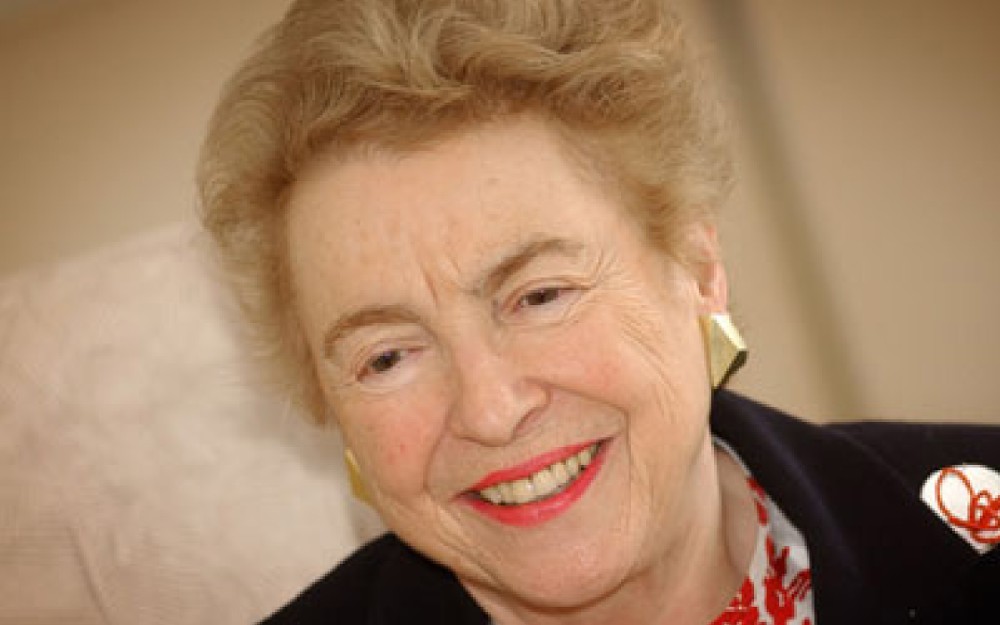



The call from the Cabinet Office came in March 2009. Would I be interested in being appointed as Britain’s first- ever Ambassador for Philanthropy? Many said, after the fact, that I was a logical choice: I was self-made and had given generously to autism research and technology and was at home talking about all aspects of giving. I weighed the offer for about five minutes, and promptly signed on.
In the end, the position turned out to be both more and less than I initially imagined. We had few victories in a push to truly unleash giving in Britain. A year is a very short time. But, while the ambassadorship expired with the Labour government in 2010, it led to a number of developments that continue to this day.
It wasn’t long after taking the honorary position that the penny dropped—literally. I’d assumed that the undertaking would be allocated some funds for expenses, travel, and related activities such as research and aggressive outreach. However, I learned, the maximum government contribution would be roughly £10k and that amount was meant to cover the overhead for meetings in Admiralty Arch, at the time a government owned, iconic building in central London, and cups of tea for my guests.
Ultimately, I met the direct costs—approximately £250,0000—myself. And while Prime Minister Gordon Brown did finance a promotional video endorsing my ambassadorship, I was mostly on my own, and that fit the entrepreneur in me just fine. Because the ambassadorship itself was ill-defined, its existence was never properly discussed, evaluated, or, for that matter, acknowledged. I’d hoped that Whitehall would supply data to support the work, but they didn’t seem to know how much the government itself was allocating to “good works.” And agencies that did give significantly to developing countries, such as the Department for International Development, were looked at disapprovingly as overstepping colonialists.
Then an election was announced, and everything stopped. The office of the Ambassador for Philanthropy was closed officially nearly as abruptly as it was announced. But the closure didn’t stop us from carrying on privately and forming a purpose driven enterprise under the name— Ambassadors for Philanthropy—with a manifesto of unleashing giving worldwide.
When we set out, I’d known that the non-profit sector had a voice, and financial institutions and their philanthropic advisors, including attorneys, had a booming one, but philanthropists themselves were often unheard and underreported. With the Ambassadorship and after, I decided to focus our attention on philanthropists and giving them a voice.
Historically, the British rarely talk about money or what we do with it. To a degree, we began to change that paradigm. We promoted philanthropy as an activity to be enjoyed and celebrated and urged media outlets to report on philanthropists as individuals whose generosity should be examined as to its success, intention and impact, rather than solely as people whose wealth should be coveted. I delivered some 40 speeches throughout the country to promote this view. We persuaded philanthropists who’d never before discussed their giving publicly to speak up on camera. And when other countries expressed interest, our movement began to grow, initially within the Commonwealth, and then eventually worldwide.
Although the initial position was a creation of the British government, we were able to evolve and activate many of the ideas that emerged from the experience, including the curation of the digital publication you are now reading.
And while we didn’t provide the type of transformational change we’d hoped for in Britain, we at least helped preserve the benefits of philanthropy within the country. In mid-2012, the Conservative government proposed a tax action that would have sharply curtailed incentives for donors to give and give generously. Thankfully, we were able, along with others, including our network of philanthropists, to rally strong opposition to this measure, and the plan was eventually scrapped.
The philanthropist voice lives on!
RELATED: "Andrew Forrest: Out Loud"
RELATED: Dame Stephanie Shirley's Website